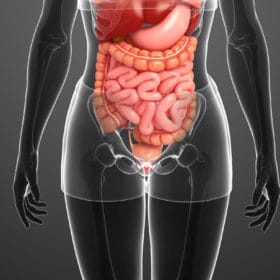Do women need a particularly high blood concentration of Testosterone and other anabolic growth hormones to build muscle, gain strength and get rid of body fat? We would like to take a closer look at this question in this article.
How big is the impact really and which hormones should be optimized to stimulate muscle growth, strength gain and fat loss?
The role of testosterone
Anabolic hormones naturally play a central role in strength training. The focus here is on human growth hormone (HGH) and testosterone, whereby we want to look at the latter first. One thing is obvious. Women have a significantly lower testosterone level in their blood than men. Strictly speaking, this is 0.7 - 3.6 pg/dl, while men have an average testosterone level of between 0.95 - 4.3 pg/dl in their blood. At 6 to 86 ng/dl, the level of so-called "free testosterone" is also significantly lower in women than in men. The average values here are around 270 to 1,100 ng/dl.
Interestingly, scientists discovered back in 2005 that testosterone can certainly have an influence on how the female body reacts to strength training, but that this influence is significantly less than previously assumed. Several studies have shown that women can build up a significant amount of muscle mass and also effectively reduce fat without an increase in testosterone levels. However, in a study also carried out in 2005 by the two researchers Kraemer and Ratamess, it was found that the blood concentration of "free testosterone" increases slightly as a result of long-term strength training.
However, the bottom line is that there is no significant difference in testosterone levels between very muscular and slimmer women. At least as long as no banned substances were taken. The theory that the maximum amount of muscle mass a woman can build up through strength training correlates strongly with testosterone levels is therefore not tenable.
What influence does the HGH have?
If it is not testosterone that has a significant influence on muscle building, then it is reasonable to assume that other anabolic hormones step into the breach. In any case, this is the conclusion drawn by the aforementioned study, which was unable to prove a significant correlation between testosterone levels and the muscle-building potential of women. As was discovered in 2002, women actually have a significantly higher natural HGH level than men. And since strength training strongly stimulates the release of the growth hormone HGH, it is no wonder that the HGH release in women is also greater on average than in men.
A study in 1996, for example, examined the reaction of the female body to different forms of strength training. It was found, for example, that training with a high training volume leads to a higher HGH release than strength training with a lower volume. HGH release was highest when training weights above 70 percent of the 1RM were used for high-volume training. So what does this mean?
Conclusion
If we now compare the results, it can be clearly stated that testosterone has no statistically significant influence on either muscle building or body fat burning in women. The situation is different with the growth hormone HGH. Even though numerous other factors play a decisive role in both muscle building and fat reduction, HGH appears to be an immensely important factor. In terms of supplementation and nutritional optimization, it can therefore make sense to buy products or take measures to increase HGH levels.
Vitamin D3 Drops
Micronutrients such as vitamins, minerals and trace elements are at least as important for our organism as the macronutrients carbohydrates, proteins and fat. A special role is played by the fat-soluble vitamin D3, which we can only absorb in small quantities through our diet.
Vitamin D3 Drops



